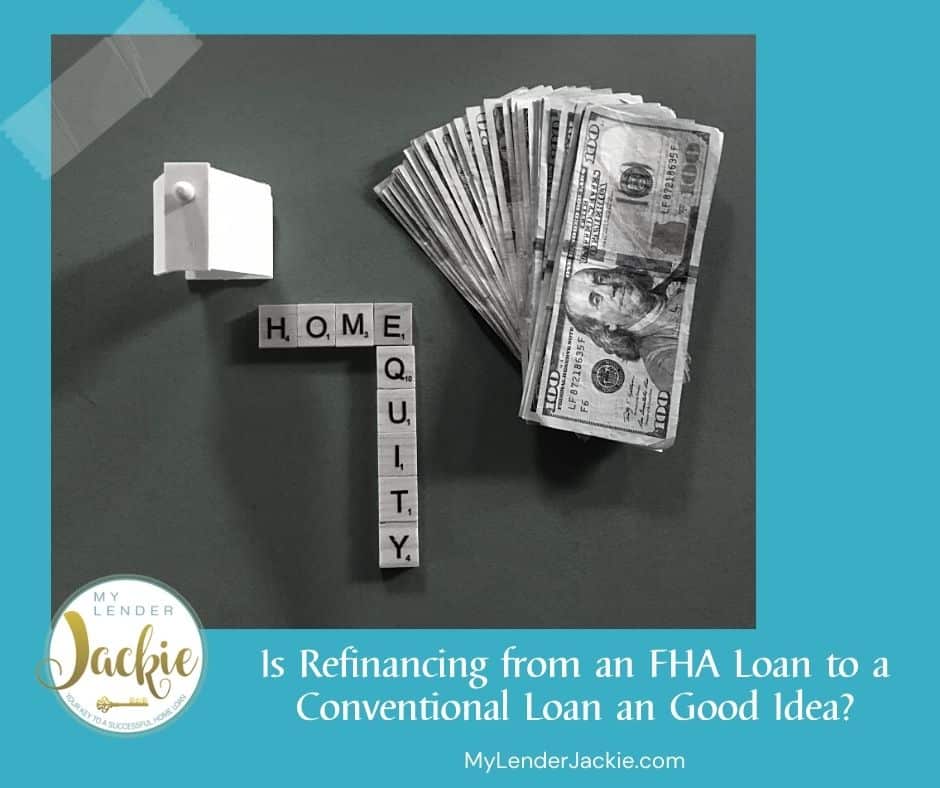With Interest rates remaining at historic lows, some homeowners with FHA loans are considering switching over to a conventional loan. Switching can bring some positive changes like a lower payment, less interest, and the chance to get rid of mortgage insurance. In some cases the switch may not prove so beneficial.
When is it a Good Time to Make the Switch?
If you meet some minimum requirements, you are eligible to make the switch from an FHA loan to a conventional home loan. The requirements are those of qualifying for the conventional loan itself. This consists of a credit score of 620 or higher since you took out the FHA loan.
Switching loans is only a good idea when the terms of the loan become better. So right now as mortgage rates are very low it could be a great time to switch. Ideally you should only really make the leap if it will save you a couple hundred dollars on your monthly mortgage payment or lower the interest by about one full percentage. Conventional loans usually carry a lower interest rate than FHA loans.
You should also look into whether the money being saved is going to outweigh the cost of closing the new loan. This can cost between 2 and 5 percent of the new loan balance. This would be known as the break-even point.
Benefits of Switching from FHA to Conventional
One of the biggest advantages of switching from FHA to conventional is the ability to stop paying for FHA mortgage insurance. With a conventional loan, once the loan balance is at 80 percent of the home’s original value private mortgage insurance can be dropped by the homeowner. Keeping an FHA loan does not give the option of ever dropping insurance.
Another advantage of switching to conventional is that it allows you to draw money from the home equity. A cash-out refinance is an option of a conventional loan, homeowners can tap into as much as 80 percent of the equity in their home. Conventional loans also allow homeowners to borrow more money.
Drawbacks of Refinancing from FHA to Conventional
Refinancing to conventional comes with a higher mortgage insurance payment (for a short period of time) as well as having to pay closing costs. This can be a large sum of money. Before going through with a refinance make sure to run the numbers and determine if the closing costs are a small hurdle in smoother and more affordable homeownership.
Alternatives to Switching to Conventional Loans
If it is not an option to switch to a conventional loan right now, you may still be able to benefit from an FHA streamline refinance. This is a way to refinance without undergoing strict qualifiers like verifying your current income, getting an appraisal, or having a credit check.
To qualify for an FHA streamline you need to:
- Have a current FHA loan
- Be current in your loan and payments for the last 6 months have been on time, it has been at least 6 months since the first payment on the loan was made and at least 210 days since that loan was closed
- Refinancing would result in a net tangible benefit like lowering monthly payments or switching interest rates from adjustable to a fixed rate.
- You will be able to continue paying for the mortgage insurance
Even though interest rates are very low right now, the fine details of switching from an FHA loan to a conventional loan may not end up being more beneficial. Carefully consider and weigh all of the pros and cons before making the leap.
For help discovering all of your mortgage options in Mission Viejo and California please contact me anytime. I am here to do the work of finding all of your loan options and helping you to decide which is best.
For help finding a mortgage in California or forbearance info please contact me at any time. See More Tips for Home Buyers Below
- Tips for Scoring Lower Rates and Speedier Closings on Mortgages Right Now
- How Does a Mortgage Loan Officer Get Paid?
- Low Interest Rates Mean You Can Afford More
- What is a Mortgage Rate Lock?
- No Closing Cost Refinance
- What You Need to Know About an E-Closing
- Can you refinance a mortgage on a COVID forbearance plan?
- How to Start Saving Money for a House
- Why Fannie Mae and Freddie Mac Impact Every Mortgage

